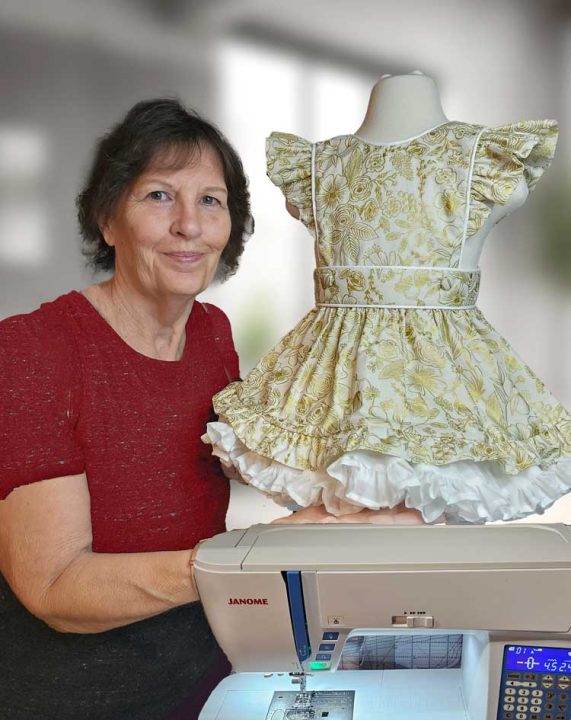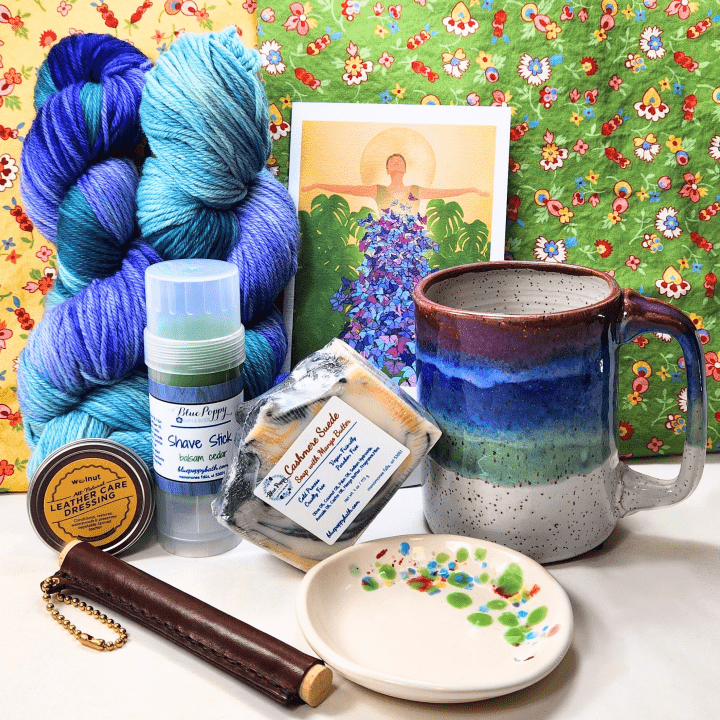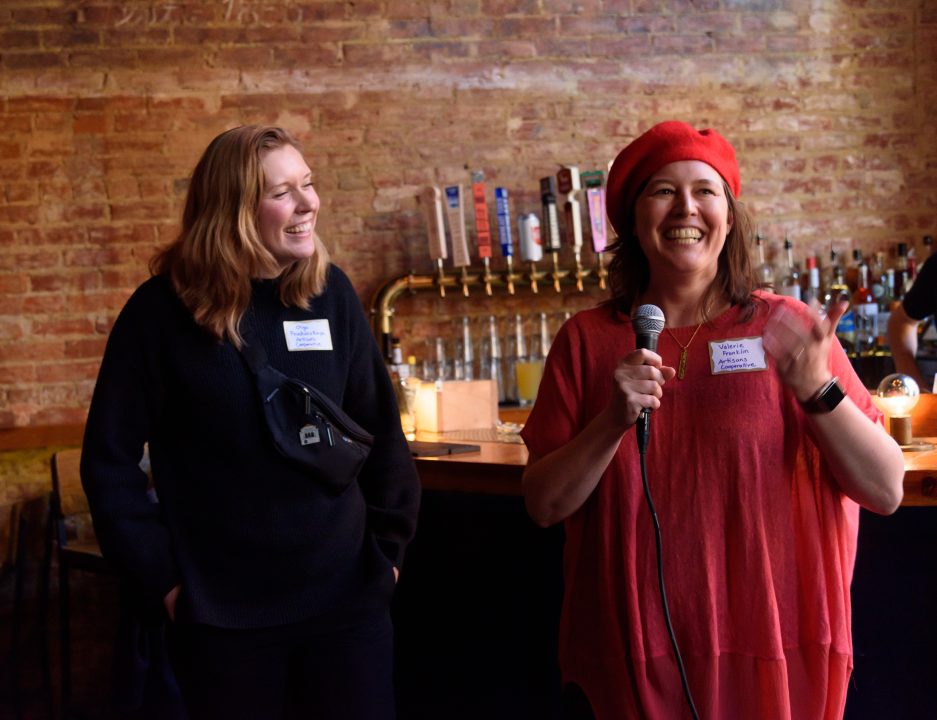Launched in 2021 to support artisans’ self-owned independent businesses, the Artisans Cooperative prides itself on being the first “verified” handmade marketplace. This means the co-op, which already has over 300 members, has a policy that creates a technical definition of “handmade” for its marketplace. The co-op defines handmade goods as “authentic original works produced with the care, dexterity / skill, and judgment of the artisan, under the workmanship of risk”, meaning that at some point in the process, the artisan could ruin the work. We first featured the co-op in our January issue. To find our how its members have been getting on since then, we interviewed Valerie Schafer Franklin, from Walnut Studiolo, a family leather crafting business, who is also a founding member of the Artisans Cooperative.
Some of our readers may not be familiar with the Artisans Cooperative. How did it come about?
In February 2022, Etsy announced record profits for 2021. In the same week, they also announced they were increasing seller fees by 30%. The unfairness of both announcements — in the span of the same week – instinctively outraged small makers and crafters worldwide who rely on Etsy for selling their handmade goods. Upset sellers took to social media and spontaneously organised the #EtsyStrike in just seven weeks. Thirty thousand shops (1% of listings) removed their products from the marketplace for the week in protest. However, although the strike attracted incredible mainstream media attention and was by all means a success, it did not result in any changes to Etsy’s harmful business practices.
After the strike, a group of artisans and supportive shoppers who met through the strike got together and decided they’d rather build a better marketplace, one that they owned themselves, than keep fighting Etsy. We imagined a world in which Etsy’s millions of dollars of shareholder profits were distributed in the pockets of artisans worldwide, and we wanted to make that dream a reality. Thus the idea for Artisans Coop was born. We started a free Discord server as a virtual community café and began organising from there.

Why did you choose the co-op model?
It’s a well-known historical pattern, dubbed the “strike-to-co-op transition” by historian John Curl: when strikes don’t work, workers turn to co-ops instead. We knew from the start we wanted our own marketplace to be co-operatively-owned. As any artisan who’s been on Etsy a while knows, there have been many promising attempts to build an alternative to Etsy, but they all had the same thing in common: investor ownership. The most successful ones just sold out to Etsy, leaving us right back where we started. A co-op alternative to Etsy was clearly an idea whose time had come: not only were strikers bringing up the idea on their own in social media channels, but a business journalist covering the strike even suggested it. Knowing so many people were having the same thoughts gave us the courage to proceed.
Had any of the founding members been involved in co-ops before?
Not really! co-operatives in the USA are less visible and known than elsewhere in the world. I had worked at a food co-op in college as a cashier, but much of the intellectual ideas behind our initial vision, such as the multi-stakeholder model, came from self-learning. We are so grateful for the abundance of learning available online from the co-operative community, especially given the rural location of many of our initial founders. Free webinars from the US Federation of Worker Co-ops, free publications, games and resource libraries across the internet, and the free self-taught Lean Co-op 101 course from Start.coop gave us the information we needed to get started.

How is the co-op different from other enterprises in this sector?
Our primary objective is to help artisans. We know that means sales are needed right now to put food on the table – not sales some day. So right away, we researched and published a comprehensive list of Etsy alternatives, which compares the merits of each, including Artisans Cooperative. There are over 40!
Etsy has the critical mass of customers but there are some niche marketplaces that may be a really good fit for some artisans right now. We encourage artisans to diversify where they list their work so that when the winds shift, their businesses are resilient.
That includes adding Artisans Cooperative into their portfolio mix. Our marketplace is different than the others because the people who love it — the artisans and shoppers and, some day, staff — decide how to run it. Our unique people-driven Handmade Policy ensures that only “actually handmade” products are on the marketplace, while being inclusive of all kinds of craft. Like Etsy, we have an inclusive, global scope: although we’re registered in the US, we have members around the world.
What are the benefits for members?
We used the Ownership Model Canvas to design the benefits and responsibilities of membership. We are a multi-stakeholder co-operative: artisans (producers), supporters (consumers), and staff (workers). We don’t have any staff yet but we’re looking forward to our first hire someday soon! For all our members, we offer financial rights and governance rights. For artisans, we also offer lower marketplace fees, and no upfront listing fees or monthly subscriptions.

What were the challenges faced when setting up?
Our challenges were numerous. The biggest challenge we had was raising enough money in the very beginning to afford the legal fees for co-operative incorporation. For that, we had a lucky break: we applied and were accepted to the Start.coop Spring 2023 accelerator. This programme came with an educational programme in “building co-ops that scale,” a supportive network, and a $10,000 grant. We found an incredible, supportive, and mission-aligned attorney that offered solidarity rates. Once we had incorporated and were able to bring on our first members, we were off to the races! So far, we have been almost entirely funded by member buy-ins and that $10,000 grant.
Are you accepting new members?
Yes! Please consider joining today as an artisan or as a general supporter: artisans.coop/membership
Do you work with other co-ops?
Yes! We strongly believe in Principle Six (co-operation among co-operatives). For co-operative artisans: we made sure to write you specially into our bylaws. Handmade co-operatives and mutual aid societies can share a shop on our marketplace as an artisan member. And we love to network and collaborate with fellow co-operatives to find alignments and mutual benefit. We are part of a supportive network of co-operatives through our Start.coop accelerator programme, and the Rochdale Six server.
What’s next for you?
We launched our beta marketplace in October 2023, and it’s available now for shopping.(You don’t need to be a member to shop in the marketplace. Next, we’re focused on making business process improvements identified in the beta, opening up the marketplace to non-member artisans, and most importantly — growing our marketing efforts so we can put money in artisans’ pockets.
What is your message to our readers?
Visit our website, subscribe to our newsletter and shop “actually handmade” on our co-operative marketplace: artisans.coop

